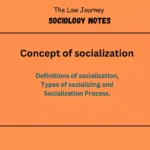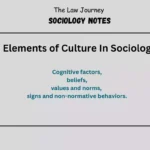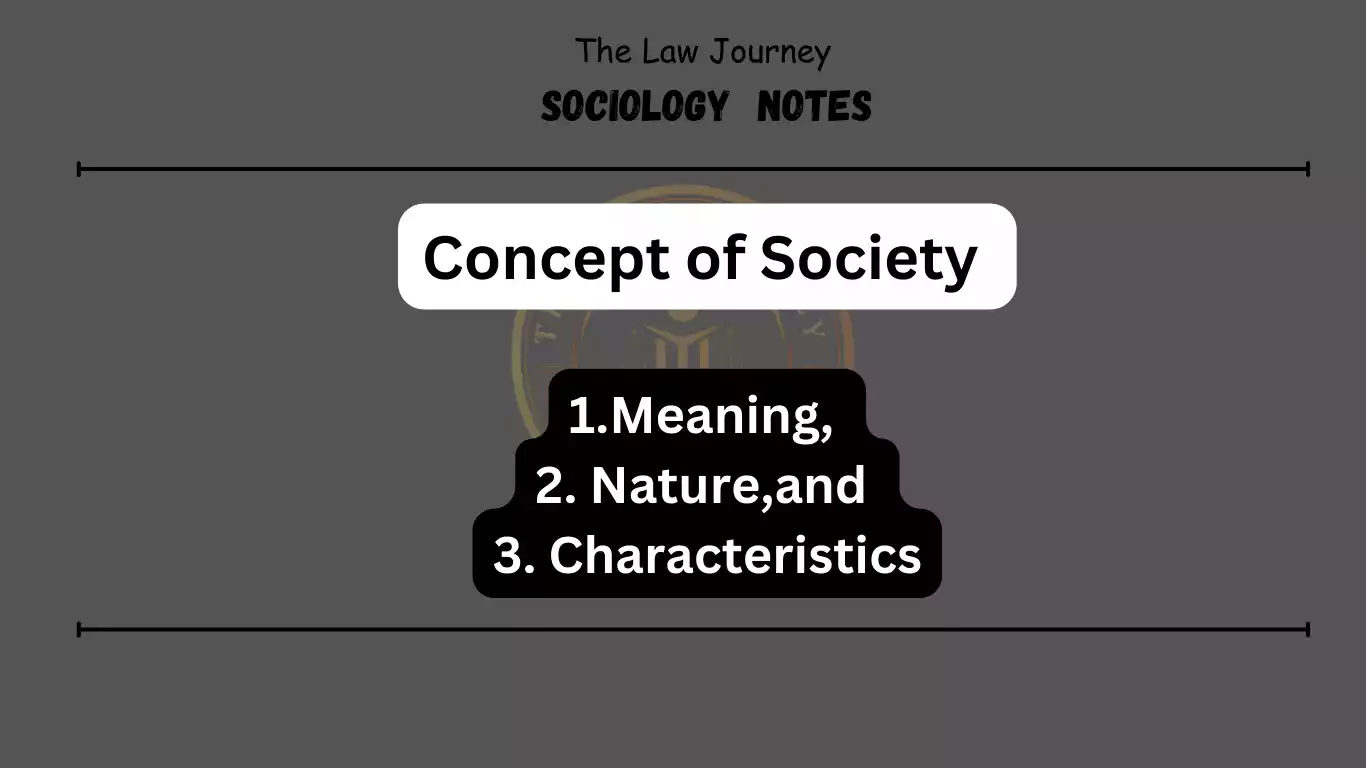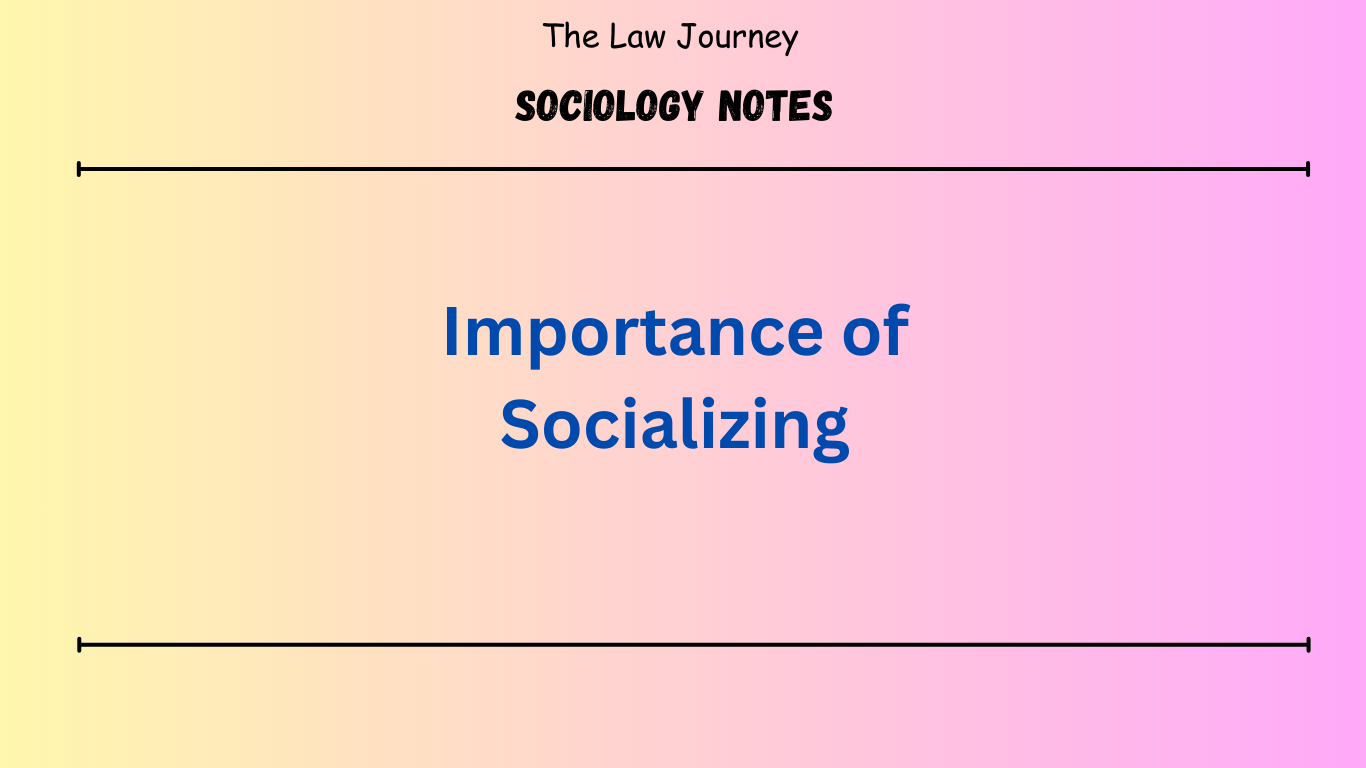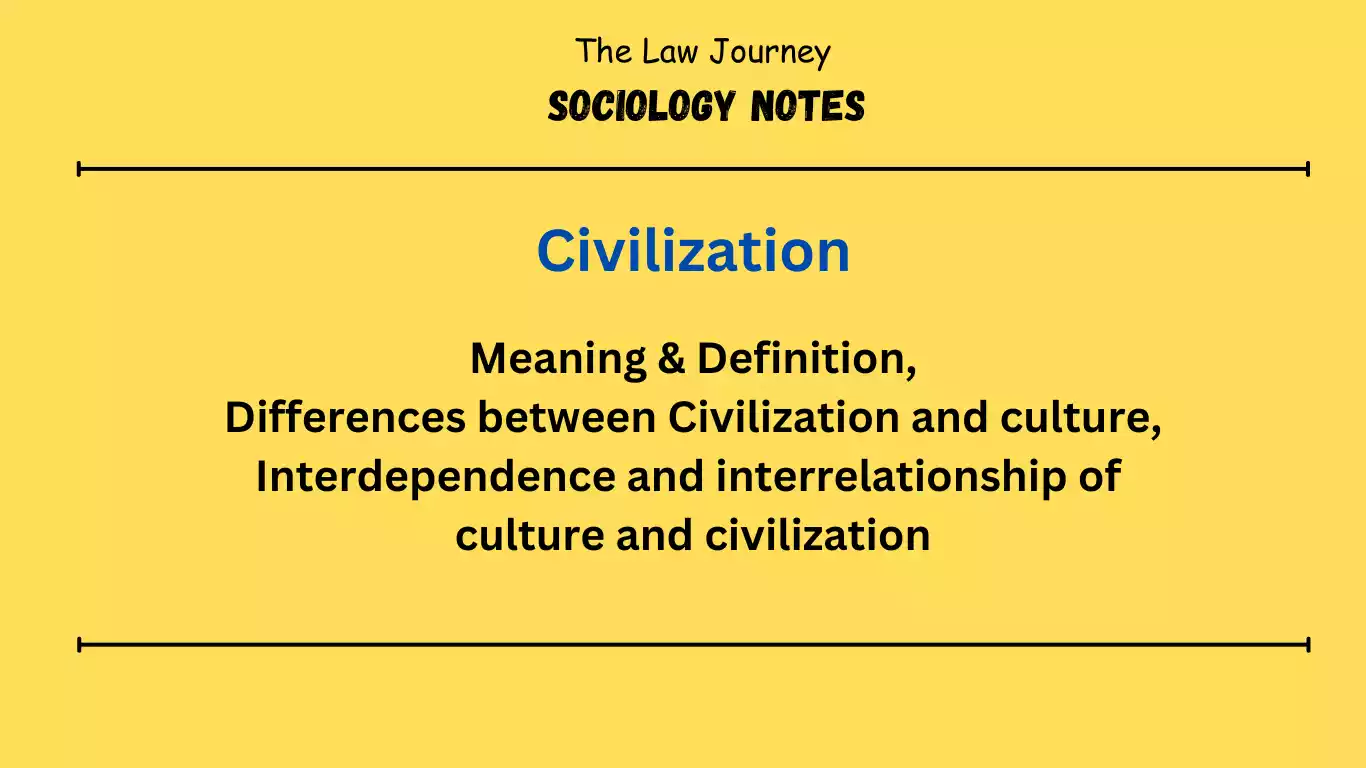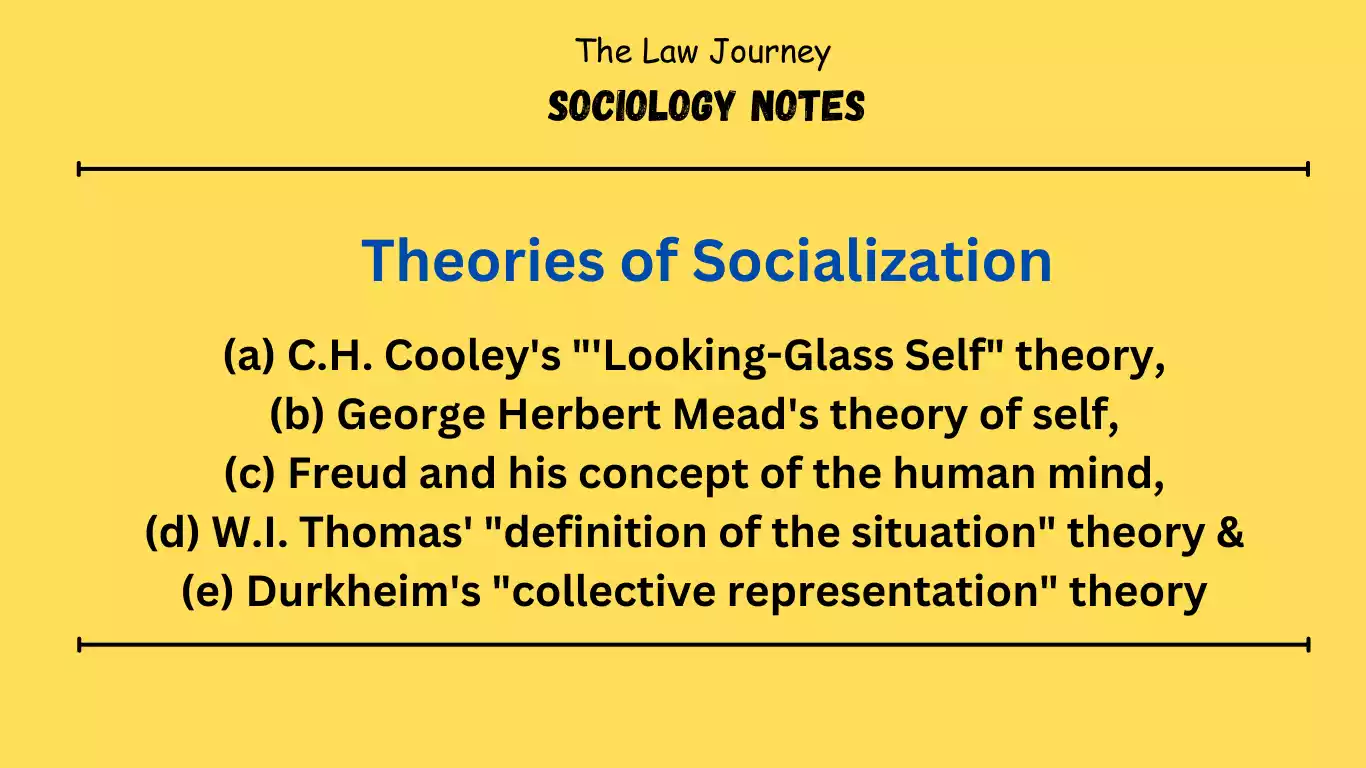The concept of “society” is the most basic concept in sociology. Nevertheless, it is one of the vaguest and most common terms in the sociologist’s vocabulary. We talk about cooperatives, agricultural societies, friendship societies, Jesuits, Theosophical societies, etc. In these examples, “society” simply means an association. Sometimes we may say: “I enjoy being with him,” “I like being with artists,” “I live in high society.” These three uses of the word “society” here mean society or community. The term society is also used to mean urban or rural society, modern industrial or primitive society, open society or closed society, etc.
Origin of the word Society
The term “society” comes from the Latin word “socius,” meaning companionship or friendship. companionship means sociability. As George Simmel pointed out, it is this element of conviviality that defines the essence of society. It shows that people always live with other people. “Man is a social animal,” Aristotle said centuries ago.
People live in cities, tribes, and villages, but they are never alone. Loneliness brings him boredom and fear. Society is necessary for people to live, work, and have fun. Society has become an essential prerequisite for the emergence and continuation of human life. Human life and society are always one in the same.
Meaning of society
- “A society is a collection of individuals united by certain relations or modes of behaviour which mark them off from others who do not enter into these relations or who differ from them in behaviour”. –Morris Ginsberg
- “Society is the complex of organised associations and institutions with a community”. – G.D.M. Cole
- “Society is the union itself, the organisation, the sum of formal relations in which associating individuals are bound together.”-Prof. Giddings
- “The term society refers not to group of people, but to the complex pattern of the norms of interaction that arise among and between them”. –Lapiere
- Society is “a web of social relationship”. –MacIver
Characteristics of the Society
(1) Society is made up of people
Society is made up of people. Without students and teachers, there would be no university. Similarly, without people there would be no social relationships or social life at all.
(2) Mutual interaction and mutual Awareness
Society is a group of people who constantly interact with each other. Refers to mutual contact between two or more people. It is “the process by which people infiltrate each other’s ideas.” Individuals are members of society insofar as they maintain relationships with other members of society. It means that individuals are constantly interacting with other individuals in society. The boundaries of society are marked by the boundaries of social interaction.
Social interaction is enabled by mutual recognition. Society is understood as a network of social relationships. But not all relationships are social relationships. Social relationships only exist if members are aware of each other. Society exists only if social beings “act” towards each other in ways determined by mutual recognition. Without this awareness, society cannot exist. Social relations therefore imply mutual recognition.
(3) Society relies on similarity
The principle of similarity is essential to society. It exists between people who are similar to some extent both physically and mentally. Similarity refers to similarities. People have similarities in their needs, work, goals, ideals, values, and outlook on life. Just as birds of the same feather come together, people belonging to the same species, Homo sapiens, have many things.
Therefore, society is based on the ideas of F.H. Giddings calls consciousness “a kind of consciousness.” “Companionship, intimacy, connection of any kind and degree is impossible without a certain mutual understanding of the other, and that understanding depends on each side recognizing what similarities they perceive in the other. It depends on who you are.” – People with heart.
(4) Society is also based on differences
Society also includes differences. A society based solely on equality and homogeneity will necessarily have no socialists. If men were completely equal, their social relationships would be very limited. There is very little give and take and very little reciprocity.
They contribute little to each other. Moreover, without differences, life would be boring, monotonous and uninteresting. Therefore, we find differences in society. For example, families are based on biological differences between men and women. People differ in appearance, personality, skills, talents, attitudes, interests, preferences, intelligence, beliefs, and more.
People pursue different activities because of these differences. Thus we find farmers, labourers, teachers, soldiers, businessmen, bankers, engineers, doctors advocates, writers, artists, scientists, musicians, actors, politicians, bureaucrats and others workins in different capacities, in different fields in society. However, differences alone cannot create society. It is subordinate to likeness.
(5) Co-operation and Division of Labour
The first equality and the second difference give rise to the division of labor. In division of labor, each unit or group is assigned a certain share of common tasks. For example, multiple people share the common task of making cotton clothing, including farmers who grow cotton, spinners and weavers, dyers, and merchants. Similarly, household tasks are divided among fathers, mothers, and children. Division of labor leads to specialization. Division of labor and specialization are characteristics of modern complex societies.
Cooperation allows for division of labor. Society is based on collaboration. It is the basis of our social life. As CH, Cooley says, “Collaboration happens when men realize they have a common interest.” Refers to mutual cooperation to achieve a common goal. Men satisfy many of their desires and interests through joint efforts. Direct or indirect cooperation exists between people. Cooperation and division of labor made possible social solidarity and social cohesion.
(7) Society is dynamic
Society is not static. It’s dynamic. Change is omnipresent in society. Variability is an inherent characteristic of human societies. No society can remain constant forever. Society is like water in a stream or river that flows forever. It’s always in flux. Old people die and new ones are born. New clubs, organizations, and groups may emerge, and old clubs, organizations, and groups may disappear on their own. Existing things can be adapted to the needs of the times, and new ones can also be created. Change can occur slowly and gradually, or it can occur suddenly.
(8) Social control
Society has its own ways and means of controlling the behavior of its members. Collaboration definitely exists in society. But competition, conflict, tension, uprising, rebellion, and repression also exist in parallel. They appear and reappear from time to time. Conflicts between economic, political, and religious interests are not uncommon. If left unchecked, they can damage the fabric of society.
They should be managed. People’s actions and activities should be regulated. Society has a variety of formal and informal means of social control. This means that society has customs, traditions, customs and customs, customs, manners, etiquette, and informal means of social control. It also has laws, legislation, constitutions, police, courts, military, and other formal social control instruments to regulate the behavior of its members.
(9) Culture
Every society is different from other societies. Every society is unique because it has its own way of life called culture. As Linton says, culture refers to a people’s social heritage. It covers all areas of our life. This includes our attitudes, judgments, morals, values, beliefs, ideas, ideologies, and our institutions (political, legal, economic). our science and philosophy.
Culture is the expression of our humanity in the way we live, think, act and act as members of society. Culture and society are one in the same. What distinguishes one society from another is culture. Culture is something only humans have. It doesn’t happen at the animal level. Culture is not society, but an element of society.
Gillin and Gillin said: “Culture is the glue that binds individuals to society. …Human societies are made up of people’s interactions, and culture is what structures people’s behavior.”
(10) There is another attribute on which society depends
It’s human nature to be sociable. Aristotle said, “Man is a social animal.” Psychologists like McDougall say that humans are sociable because of a basic human instinct called herd instinct. Sociability refers to the tendency of humans to live in groups.
Humans always live among humans. he can’t live without it. This inner nature of man has forced him to create and live in social groups and societies. Human life and society are almost one in the same. Human beings are born into society, grow up in society, feed and nourish themselves in society.
Human beings live in society from childhood to adolescence, from adolescence to adolescence, from adolescence to adulthood, from adulthood to old age, and from old age to death. He depends on society for protection and comfort, care and education. Participation in social life is necessary for the development of personality. Various examples show that humans can only become humans among humans.
Society makes our lives worthwhile. She is the nurturer of youth and the stage for masculinity and femininity. So, as McVar says, society is more than our environment. It’s within us and all around us. Society not only liberates people’s activities, but also restricts them.
It controls their behavior in countless ways. It shapes our characteristics, beliefs, morals, and ideals. Emotional development, intellectual maturity, fulfillment of physical needs, and material comfort are unthinkable without society. Society is part of our mental apparatus and we are part of society. It stimulates the growth of our personality. It frees and controls our talents and abilities.
Related Post
- Rural Sociology – Rural Branch of Sociology
- Branches of Sociology
- Application or Uses of sociology
- Concept of Social Groups in Sociology
- RTI notes
- Political Notes
- Legal History Notes
- Law of Torts notes
- law project maker
- moot court memorial maker
Origin of the word Society.
The term “society” comes from the Latin word “socius,” meaning companionship or friendship. companionship means sociability.
Meaning of society
“A society is a collection of individuals united by certain relations or modes of behaviour which mark them off from others who do not enter into these relations or who differ from them in behaviour”. –Morris Ginsberg
Reference Books
- Introduction to Sociology by Anthony Giddens
- A Dictionary of Sociology by John Scott
- C.N. Shankar Rao – Principle of sociology with an introduction to social thoughts
- Sociological Theory by George Ritzer
- Handbook of Indian Sociology by Veena Das
- Social Change in Modern India by M N Srinivas













